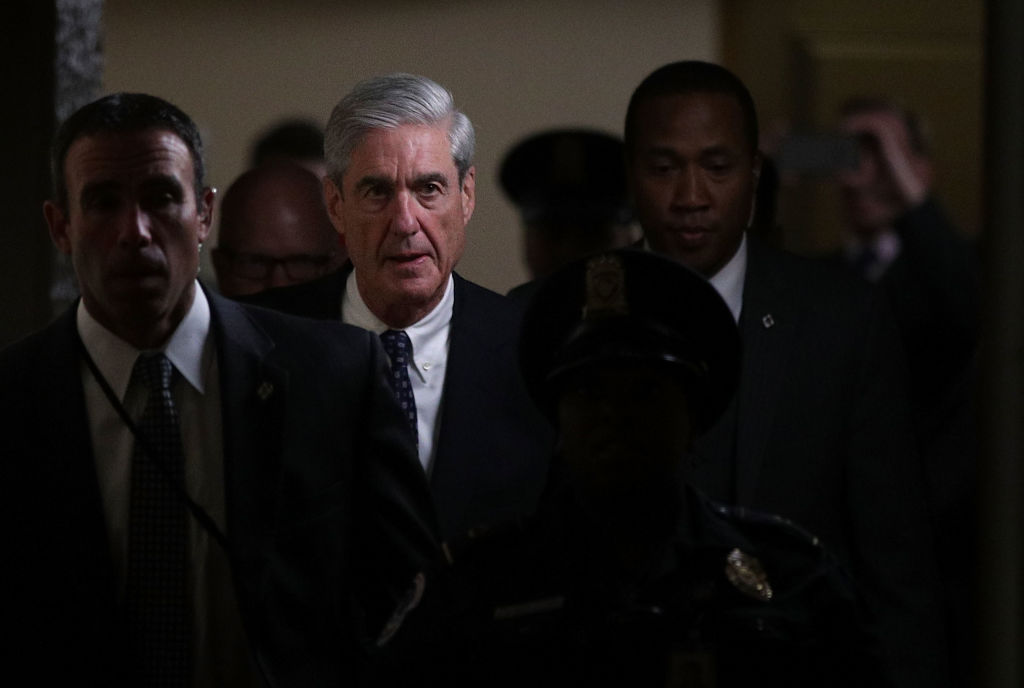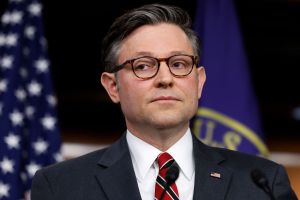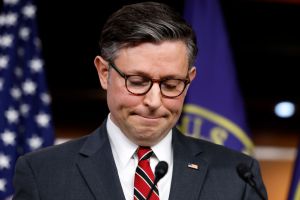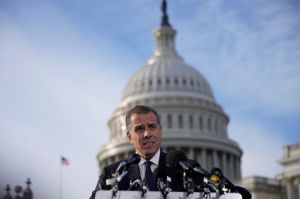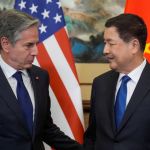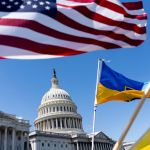Beneath a hardened carapace of WASP propriety, is it possible that Robert Mueller is seething with anger? On the surface, his resignation statement today – his task completed – was unremarkable. He said he would not go beyond his published report, adding: ‘[T]he work speaks for itself.’ But this in itself seemed like a rebuke of the Attorney General, Bill Barr, whose initial summary of Mueller’s findings used partial and selective quotation to position the report as an exoneration of Trump.
Mueller’s short statement today underlines that there was no exoneration of Trump on the accusation of obstruction of justice. ‘If we had confidence that the president clearly did not commit a crime, we would have said so.’ Mueller also argued that it was necessary to investigate such accusations if the rule of law was to be upheld. On obstruction, and ‘collusion’: ‘The matters we investigated were of paramount importance.’ That was an implied rebuke to President Trump, who tweeted so often that he was the victim of a ‘witch hunt’.
Mueller pointedly stated that it was ‘longstanding’ DoJ policy not to charge a sitting president. So: ‘charging the president with a crime was therefore not an option we could consider.’ He went on to explain: ‘the Constitution requires a process other than the criminal justice system to formally accuse a sitting president of wrongdoing.’ This seemed like a virtual invitation to the House of Representatives to investigate whether the President should be impeached.
Mueller was on the podium at the DoJ a few hours after his spokesman denied a claim in the new book by Michael Wolff – of Fire and Fury fame – that, at one stage, an obstruction of justice indictment against Trump had actually been drawn up. The book, Siege, says there are documents showing that Mueller had prepared a ‘three-count indictment’ against the president: for ‘witness tampering’, ‘retaliating against a witness’ and ‘corruptly influencing or obstructing’ a legal proceeding. Wolff writes that the indictment, ‘United States of America against Donald J. Trump, Defendant’, sat on the Special Counsel’s desk for almost a year.
Spectator USA readers will be familiar with this claim. Back in March, as Mueller was about to hand in his report, Cockburn said that Mueller wanted to indict Trump on obstruction but was stopped from doing so by Barr. A source told Cockburn then that ‘disagreement’ over this issue had led to a delay in the completion of Mueller’s report. The denial from the Special Counsel’s office was emphatic, with the spokesman Peter Carr saying, ‘The documents described do not exist.’ Wolff was unperturbed, telling the New York Times, ‘My source is impeccable, and I have no doubt about the authenticity and the significance of the documents.’
Whether or not these documents exist, it always seemed obvious to Cockburn simply from reading Mueller’s report that he thought there was a case against Trump for obstruction. The statement today only reinforces that conclusion. In one, narrow way, this doesn’t matter. If Trump did obstruct justice, he did so in plain sight: firing the FBI director James Comey over ‘the Russia thing’, calling his former lawyer Michael Cohen a ‘rat’, praising Paul Manafort for hanging tough, and tweeting abuse of the investigators themselves. The voters can make up their own minds about all this. Many of them – and not just the President’s supporters – will think it’s unfair to prosecute an obstruction charge if there was no underlying crime (‘collusion’).
Still, Mueller’s report has set out a clear roadmap for Congress to indict – that is impeach – Trump. Whether they set out on that journey is a political decision, of course – the Senate with its Republican majority won’t convict and so Democrats in the House worry that a vote to impeach would be an empty gesture that would only hurt them in the 2020 presidential election. They remember how President Clinton’s popularity remained undented by what many voters saw as a politically motivated impeachment by the House.
Sidney Blumenthal, the former Clinton White House official and noted Lincoln biographer has made an interesting contribution to this debate. He says that Clinton’s case has little relevance to Trump’s: public support for impeachment is at 45 percent, ‘a near majority… That phenomenon never occurred during the Clinton impeachment, not once.’ He argues that the right comparison is with Nixon. ‘Nixon, a far more popular president than the abysmally rated Trump, collapsed in public opinion as the drive to his impeachment unfolded…if he [Trump] seems to be taunting the Democrats to impeach him, it is a desperate act of miscalculation.’
Blumenthal knows how the Democratic party thinks and feels. His opinion may be influential. A former Watergate prosecutor, Jill Wine Banks, says that his piece ‘changes the balance to favor Congress acting now.’
Wine Banks is a Trump critic, but all of this shows the kinds of calculations Democrats in the House are making. It is not impossible that the backdrop to the 2020 campaign will be impeachment proceedings in the House.
